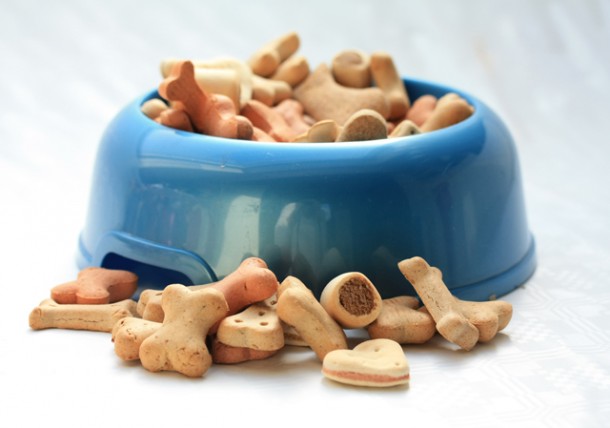Food Recalls Ensure Pets’ Safety

When an issue is reported in the media with commercial pet foods, finding a place to turn for updates can be frustrating to pet owners.
What is a pet food recall?
Pet food manufacturers, along with the U.S. Food and Drug Administration (FDA), monitor the safety of pet foods sold, and if a concern or problem with a product arises, the company or FDA can order a recall of the product. Recalled foods are pulled from store shelves while the issues or concerns are investigated. This vital precaution prevents you from purchasing the food until safety is confirmed. Recently, traditional and social media outlets have made mention of certain companies selling tainted pet foods, which has unnerved many owners who now are reluctant to trust commercial food products in fear of harming their pet.
Resources for pet food recalls
Pet owners seeking answers and craving resources to satisfy concerns for Fido’s well-being have many options available. Current, up-to-date information about animal food products, including foods and treats, can be found in several trustworthy places. While calling your veterinary office is a great initial step with any pet-related concerns, veterinary staff members are managing a lobby full of cases and a loaded schedule, which may lead to limited time to relay detailed information. For a complete assessment of your pet’s tasty foods, you can call the product company directly about any concerns or more proactively search the listing of pet food recalls provided online by the FDA. The American Veterinary Medical Association (AVMA) also publishes up-to-date recalls on pet foods, treats and products on their site for public review.
Precautions to take in case of food recall
A food may be recalled due to unbalanced nutrients or contamination by bacteria, mold or toxic chemicals. The effect that such foods will have on a pet vary depending on the cause of the recall, but pets frequently exhibit signs of stomach upset, such as vomiting or diarrhea. However, if there is a mold or other alteration tainting the food, pets may be at risk of organ damage such as liver or kidney disease. If your pet has become ill, do not jump to conclusions that his or her dog food is the cause. You can research your brand and product at the links below to see if an issue has been posted. If your pet shows signs of illness, it is best to seek a veterinary examination right away to ensure that testing and treatments can be offered before symptoms worsen. Upon any discovery that your pet’s food or treats are in question by the FDA or appear on a recall “menu,” the best approach is to call your veterinary office and schedule an exam. You can ask your veterinarian for new food product recommendations for your furry friend.
Feel free to reach out to your trusted veterinary team when you have concerns for your pet and its well-being. The Purina food scare won’t be the last food issue to arise, but knowing where to look for information allows you to gather a breadth of knowledge. Follow these links for more information:
http://www.fda.gov/animalveterinary/safetyhealth/recallswithdrawals/
https://www.avma.org/News/Issues/recalls-alerts/Pages/default.aspx
Jennifer Hennessey, DVM, CVJ, is a graduate of Texas A&M College of Veterinary Medicine who lives in Cypress, Texas. Dr. Hennessey practices at Animal ER of Northwest Houston, where she is the practice owner.

